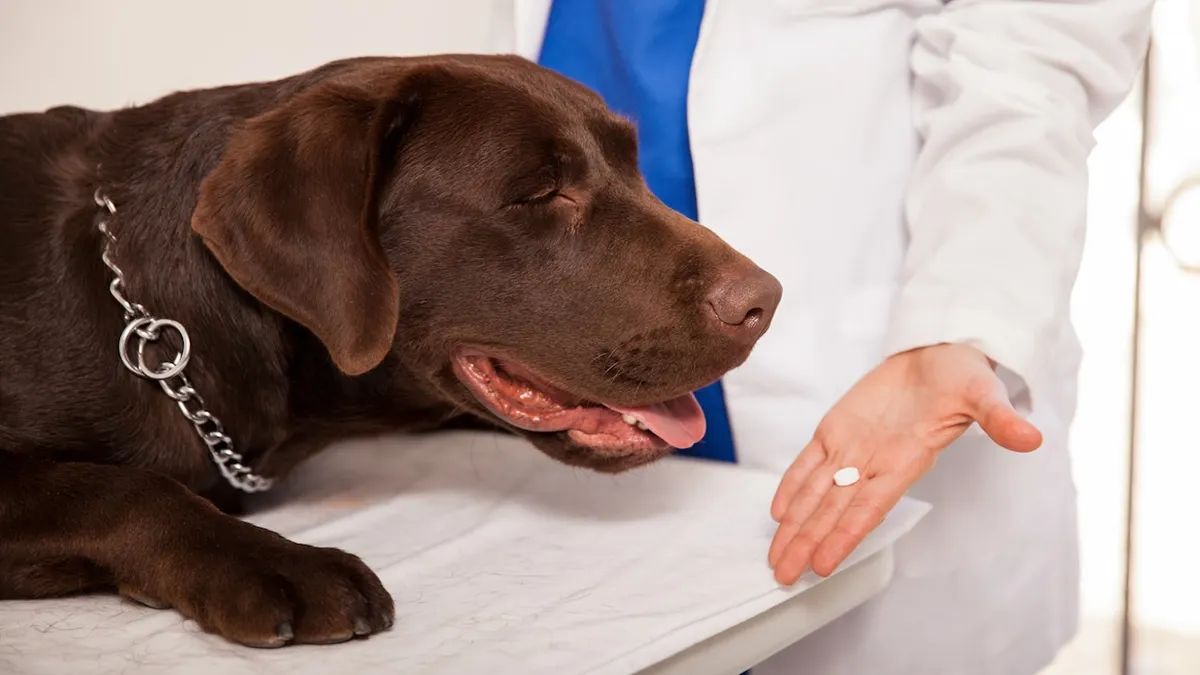UP Accidents Claim Lives of Police Officer and Local Worker in Separate Incidents
Anti-Aging Pill for Dogs Could Arrive in 2026: What Scientists, FDA and Loyal Are Preparing
Nov 27, 2025, New Delhi
A wave of excitement and confusion spread across social media this week after several posts claimed that the world’s first FDA-backed anti-aging pill for dogs could be released as early as 2026. The conversation centres around a drug called LOY-002, developed by Loyal, a clinical-stage veterinary medicine company focused on extending the healthy lifespan of pets. What began as online chatter quickly turned into a wider discussion among pet owners eager to know what the pill is, how it works and whether it is truly close to approval.
The buzz intensified when accounts like Polymarket shared posts suggesting a “new pill that makes dogs live longer” was set for release next year. Others noted that the drug had received a crucial nod from the US Food and Drug Administration, which brought the product a step closer to conditional approval. These claims echo an update Loyal released back in February 2025, when it announced that LOY-002 had received FDA acceptance confirming a “reasonable expectation of efficacy.” This means the FDA believes the drug shows enough early evidence that it could work as intended. Loyal said two major requirements remain for conditional approval: manufacturing compliance and safety confirmation, both of which the company claims to have strong data for, raising hopes that regulatory clearance could be completed by the end of 2025.
LOY-002 is designed specifically for senior dogs—those about 10 years or older and weighing at least 14 pounds. The company describes it as a “caloric restriction mimetic,” a drug intended to mimic the health benefits of calorie restriction without forcing dogs to actually eat less. Studies have shown that dogs on controlled calorie diets can live nearly two years longer and may avoid or delay illnesses like cancer and osteoarthritis. Loyal’s approach aims to offer the same boost through medication instead of diet changes. They insist the pill does not cause weight loss or appetite suppression but instead triggers biological pathways associated with improved longevity.
Early data has encouraged both scientists and pet owners. A pilot study of 48 dogs showed no adverse effects during three months of treatment, according to reports from outlets such as Hot 97. Loyal’s founder and CEO, Celine Halioua, has been vocal about her mission to bring scientifically grounded longevity solutions to the pet world. “We all want more happy, healthy years with our loved ones—especially the furry ones,” she said in an interview earlier this year. She also shared in February that LOY-002 had completed its FDA efficacy package, putting it on track to potentially become the first longevity drug for senior dogs.
If final approvals go ahead as expected, millions of pet owners may soon have access to a medication aimed not just at extending life but improving the quality of a dog’s later years. For now, while social media may be quick to declare the pill’s arrival, the FDA’s final decision will determine when—and if—LOY-002 officially becomes a part of veterinary care in 2026.
Anti-Aging Pill for Dogs Could Arrive in 2026: What Scientists, FDA and Loyal Are Preparing
A new drug called LOY-002 has sparked huge discussion online after reports claimed it could become the first FDA-approved anti-aging pill for dogs by 2026. The pill is being developed by Loyal, a veterinary biotech company working on extending healthy lifespan in senior dogs. LOY-002 received an important FDA acceptance earlier this year, confirming there is reasonable early evidence that the drug may work. Loyal says it is now completing the remaining safety and manufacturing requirements needed for conditional approval, hoping to finish regulatory steps by the end of 2025.
The pill is designed for dogs aged 10 years or older and weighing at least 14 pounds. Loyal describes it as a caloric-restriction mimetic, meaning it aims to give the benefits of controlled calorie intake without requiring dogs to eat less. Studies have shown that calorie-restricted dogs live longer and stay healthier, and early trials of LOY-002 have reported no major side effects. Loyal’s founder says the goal is not just to help dogs live longer, but to improve the quality of their later years. If approved, the pill could be available for millions of senior dogs in 2026.














Add Comment